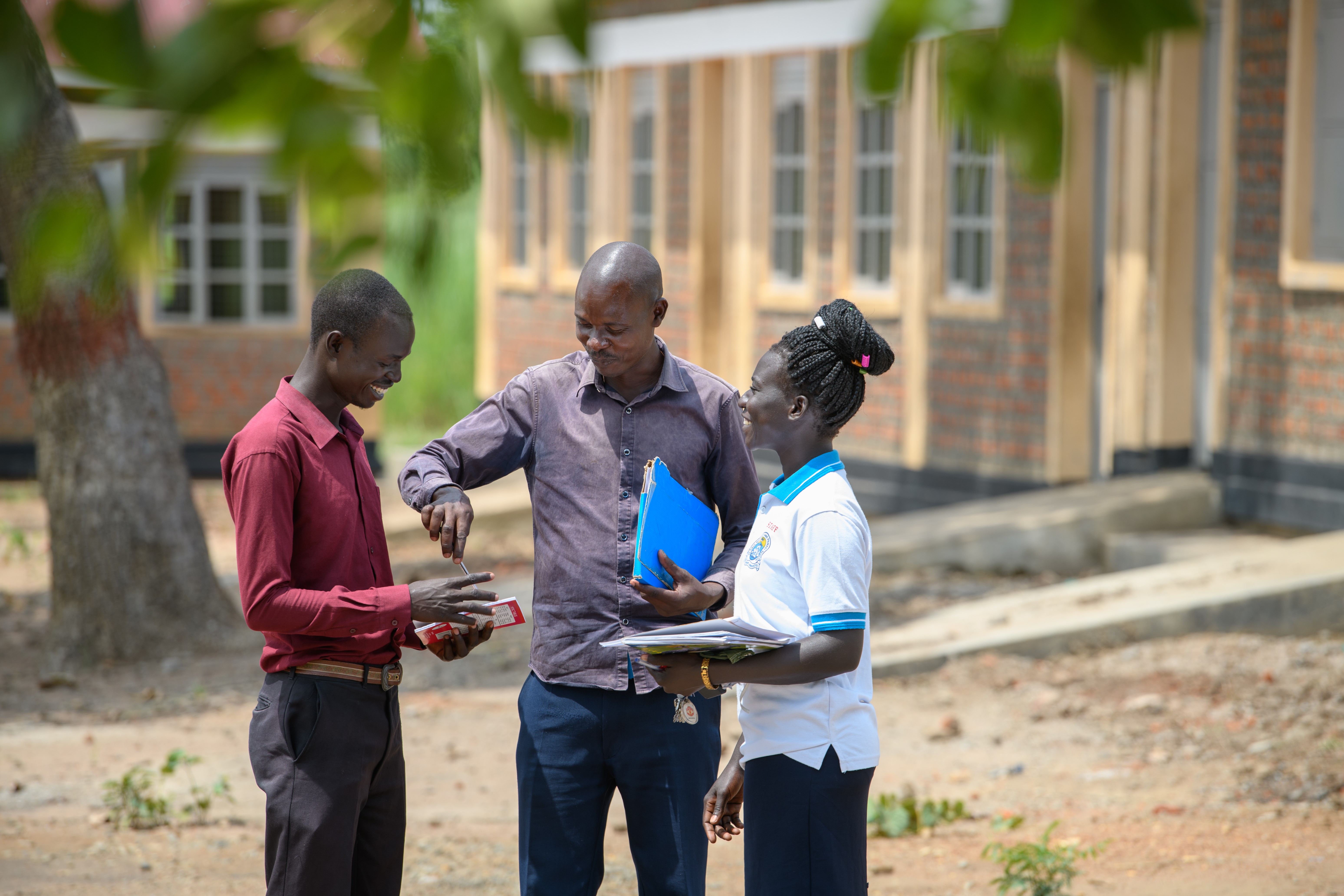Teacher Stories: Geofry Okema - Palabek Refugee Settlement, Uganda
This story was collected as part of Teachers in Crisis Contexts (TiCC) Event Series to ensure that the voices and experiences of teachers working in crisis and displacement permeate all aspects of the event. For more stories, click here.
I can only help the learners because I had lots of training
Name: Geofry Okema
Age: 47 years old
Role: Teacher
Location: Palabek Refugee Settlement, Uganda
“I am 47 years old, and I have been teaching for 22 years. In the Accelerated Education Programme (AEP) in the refugee settlement, I face many challenges.
There are communication gaps because the learners come from different parts of South Sudan and speak different languages, but they are all in the same class.
They do not understand our medium of instruction, which is English. Most of them speak their mother tongues and their common language is Arabic.
I have been trained in different techniques. I use materials which are locally available in both countries to relate to the contents of the teaching.
For example, when I teach about soil, I point to the soil. I use gestures to show certain activities that they know to make them relate the words and sentences with the action. In that way they develop their English communication skills.
 I also engage the learners in group work and educational games to enable them to understand the contents of a lesson. For example, I give them words and letters and ask the learners to join the letters into words. The first group to finalise wins a trophy made out of used bottles. That also works to keep our environment free of plastic.
I also engage the learners in group work and educational games to enable them to understand the contents of a lesson. For example, I give them words and letters and ask the learners to join the letters into words. The first group to finalise wins a trophy made out of used bottles. That also works to keep our environment free of plastic.
All this I learned from the TEPD training.
Previously, I have been working in formal primary schools in Uganda and in South Sudan. AEP is very different, because we have many learners who have dropped out from school and who have grown up in very dissimilar environments.
The learners from South Sudan went through war and lots of traumatic events. These learners especially suffer from emotional problems.
Some have stayed at home for a long time, and now they are back in school. Some of them feel lonely, some are not interested in certain activities, some react with aggression, and many feels numbness. They are tense or just sit without moving. When you call them, they jump with wide open eyes.
Always, when we identify those learners, we try to find out why they are behaving like this. I pull them aside and give them time to speak so we can help them solve their problems. I try to stay close to them, and I accompany them to their homes. Most are helped out through our counselling.
It is my pride to see them leave their problems behind, and I can only help them, because I had lots of training with the project. I participated in all TEPD modules, and I learned a lot.”
The views expressed in this piece are the author's own.



